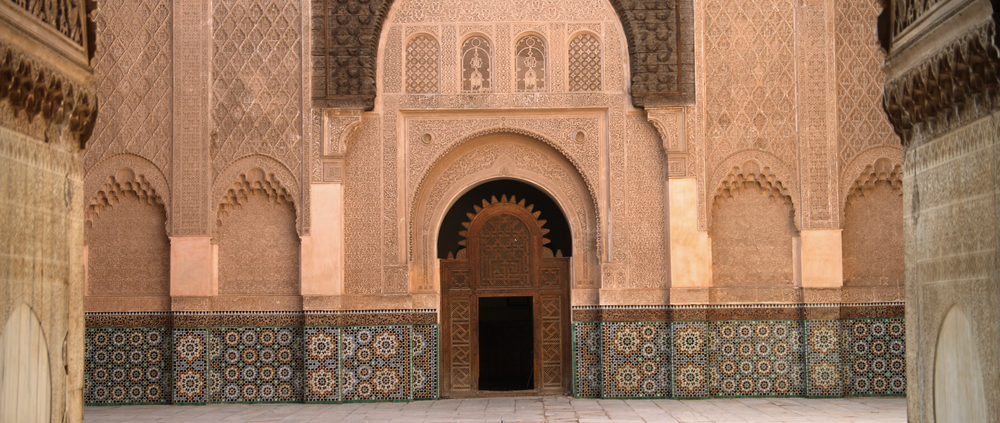Questions on Seeking Knowledge
Answered by Shaykh Yusuf Weltch
Question
1. Is it wrong for a person to pray without knowledge of the conditions of prayer (Rukun), even if what he has done meets the necessary conditions?
2. If there are many scholars that we respect and believe in their knowledge, we choose to ask only one is that enough? While we are waiting for an answer, is it still necessary to ask other scholars?
3. Is it wrong if I focused only on the essential knowledge of Aqeedah and Ibadah but ignored the minor issues that are still in doubt?
Answer
In the Name of Allah, the Most Merciful and Compassionate
First Question:
Knowledge is an obligation prior to every act of worship, even belief itself. It is impossible for someone to have correct beliefs or worship without knowing what correct beliefs and worship are and how to achieve them.
In this regard, the scholars point out the chapter headings of the monumental collection of rigorously authenticated Prophetic narrations of Imam al-Bukhari (Allah be pleased with him): The Chapter of Knowledge Before Speech and Action
Imam al-Bukhari then follows up this title with a supporting verse from the Quran that mentions having knowledge even before the credal statement of Islam La Ilaha Illa Allah:
Allah Most High says, “So, know ˹well, O Prophet,˺ that there is no god ˹worthy of worship˺ except Allah…” [Quran; 47:19]
Imam al-Ghazali (Allah have mercy on him) stated, “Knowledge without implementation is insanity, and performance (action) without knowledge is inconceivable.”
Note that if someone had been performing the prayer and they happened to perform the prayer in such a way that fulfills the conditions of the prayer according to valid scholarship – they are not required to repeat those prayers due to ignorance.
However, not making an effort to seek the personally obligatory level of knowledge is itself sinful.
Second Question:
It is sufficient for one to follow any valid authorized scholar with a recognized chain of transmission back to the Prophet (may Allah bless him and give him peace). If one has access to such a scholar to learn from and to pose questions to, one can suffice with them and is not required to seek out other scholars.
If, however, that scholar is unable to provide one with the personally obligatory level of knowledge, then one must seek out a scholar who can.
The great Shafi’ scholar Ibn Ruslan (Allah have mercy on him) mentions in his poem the Zubad:
من لم يكن يعلم ذا فاليسأل – من لم يجد معلِّما فليرحل
Whoever does not have knowledge of that (i.e. the minimum obligatory knowledge), then let them ask (a scholar) –
Whoever cannot find a teacher, then let them travel in search of one.
[Ibn Ruslan; Matn al-Zubad]
Third Question:
One should prioritize their personally obligatory knowledge in the following way:
1st) Learning and understanding the fundamental beliefs of Islam relating to Allah, the Prophets, and the Matters of the Unseen that we know through revelation and prophecy.
2nd) The basic rulings of the Sacred Law that allow one to abstain from that which is forbidden (haram) and to fulfill that which is obligatory (fard). This applies to the obligations and prohibitions of the heart as well as those of the limbs.
3rd) The basic rulings that pertain to one’s circumstance, such as business transactions for one who is engaged in that, the rights of children or spouses for the one who has a spouse and children. This can also be extended to the obligation one has toward all other relationships.
Beyond these three, seeking further knowledge of the religion is light upon light, although beyond the personally obligatory level.
[Birgivi, al-Tariqa al-Muhammadiyya]
Hope this helps
Allah knows best
[Shaykh] Yusuf Weltch
Checked and Approved by Shaykh Faraz Rabbani
Shaykh Yusuf Weltch teaches Arabic, Islamic law, and spirituality. After accepting Islam in 2008, he completed four years at the Darul Uloom Seminary in New York, where he studied Arabic and the traditional sciences.
He then traveled to Tarim, Yemen, where he studied for three years in Dar al-Mustafa under some of the most outstanding scholars of our time, including Habib Umar Bin Hafiz, Habib Kadhim al-Saqqaf, and Shaykh Umar al-Khatib.
In Tarim, Shaykh Yusuf completed the memorization of the Quran and studied beliefs, legal methodology, hadith methodology, Quranic exegesis, Islamic history, and several texts on spirituality. He joined the SeekersGuidance faculty in the summer of 2019.
